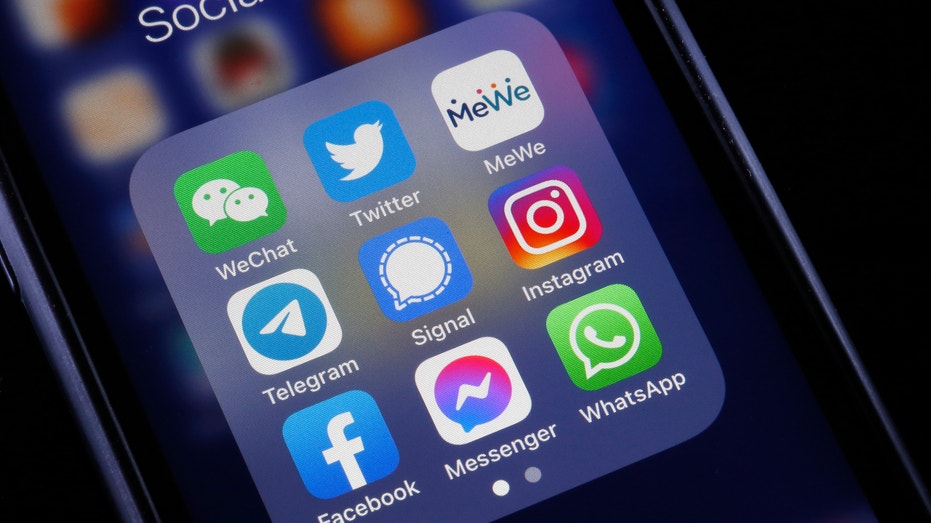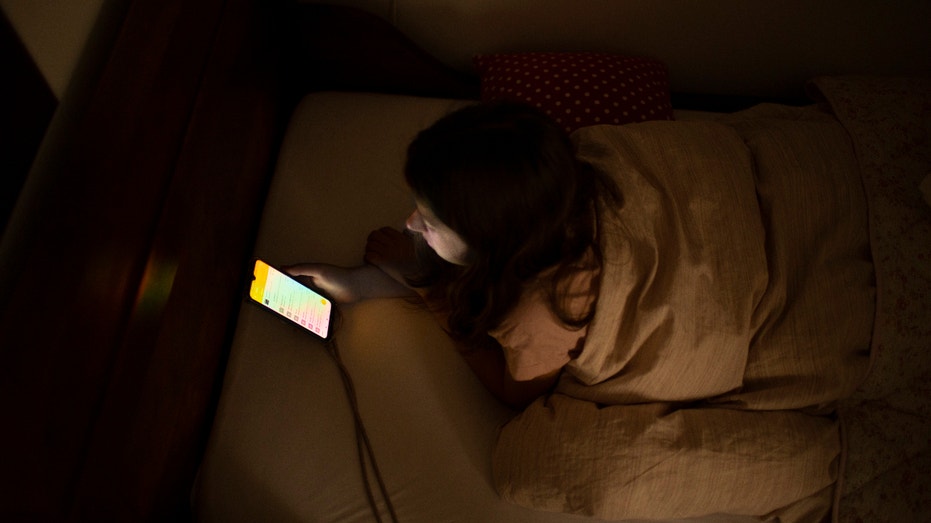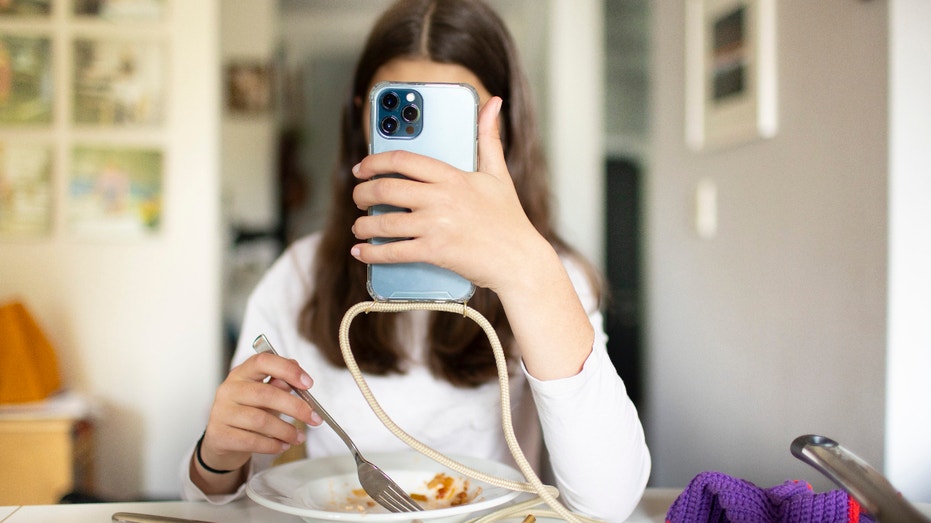Lawsuit accuses Snapchat of 'defective design' and 'negligence' after CT girl, 11, dies of suicide
The wrongful death lawsuit accuses the social media companies of facilitating 'Selena’s addictive use of' dangerous products
The Social Media Victims Law Center (SMVLC) has sued Snap, Inc., and Meta Platforms, Inc. — formerly Facebook — on behalf of the family of an 11-year-old Connecticut girl, Selena Rodriguez, who committed suicide on July 21, 2021.
The wrongful death lawsuit accuses the social media companies, which own the popular Snapchat and Instagram apps, of facilitating "Selena’s addictive use of and exposure to … unreasonable, dangerous and defective social media products."
The complaint also points to a burgeoning mental health crisis among U.S. youth that appears to correlate with the rise of technology and social media. The plaintiffs are bringing claims of liability based upon accusations of defective designs, failure to provide adequate warnings to minors of the harms of social media and negligence from dangerous products.

In this photo illustration, the logos of social media applications, WeChat, Twitter, MeWe, Telegram, Signal, Instagram, Facebook, Messenger and WhatsApp are displayed on the screen of an iPhone on Oct. 6, 2021 in Paris, France. (Chesnot/Getty Images)
"It's readily apparent that the only major change that occurred in teenage lives after 2008 was the advent of social media," Matthew Bergman, a lawyer with the Social Media Victims Law Center (SMVLC), told Fox News Digital. "And … the research has confirmed that in the hands of teens, in particular, social media has contributed to a veritable epidemic of mental health crises — not suicides — but attempted suicide, severe depression, sleep deprivation, eating disorders and the like."
He added that social media apps appear to be "driving people apart" rather than bringing them together.
SOCIAL MEDIA PARENTAL CONTROL APP SAW 25% INCREASE IN SELF-HARM, SUICIDE ALERTS AMONG TEENS IN 2021
Bergman's lawsuit says Selena had an "extreme addiction to Instagram and Snapchat" for more than two years, which caused sleep deprivation. The addiction became worse during the COVID-19 pandemic, which kept many children away from schools and on their computers and phones for extended periods of time.
Selena's mother, Tammy Rodriguez, attempted to limit her daughter's use of social media, but Selena would "run away" when she physically confiscated the girl's devices. When Rodriguez sought mental health treatment for the 11-year-old girl, "an outpatient therapist who evaluated Selena remarked that she had never seen a patient as addicted to social media as Selena." Rodriguez did not know the clinically harmful affects of social media addiction, according to the lawsuit.
"Adult male users of Snapchat and Instagram" solicited exploitive content from Selena, the complaint states. Selena allegedly sent explicit images using Snapchat, which allows users to send photos and messages that disappear after a certain amount of time. Those photos were "subsequently shared or leaked to her classmates, increasing the ridicule and embarrassment she experienced at school."

In this photo illustration, a girl looks at the screen of her smartphone April 16, 2021, in Bonn, Germany. (Ute Grabowsky/Photothek via Getty Images)
Selena was hospitalized for emergency psychiatric care and "experienced worsening depression, poor self-esteem, eating disorders, self-harm, and, ultimately, suicide," according to the lawsuit.
Bergman, a personal injury lawyer of 30 years who represented mesothelioma victims for the last 20 years before starting the SMVLC, believes the companies need to be held liable for the suffering they allegedly caused Selena.
"There's no amount of money that will compensate Tammy Rodriguez or any other parent for the loss of a child. There's no loss worse [for] parents. There's nothing we wouldn't do to protect our children," Bergman said. "The reason why Tammy is bringing this case is to hopefully — through her actions — prevent other families and other mothers from going through what she's going through."
TIKTOK MODERATOR HAS PTSD FROM WATCHING ‘GRAPHIC’ CONTENT: LAWSUIT
He added that the "purpose of product liability is to instill the financial incentive to make a safer product on the manufacturer."
A Snapchat spokesperson told FOX Business in a statement that the company is "devastated to hear of Selena’s passing."
"While we can’t comment on the specifics of active litigation, nothing is more important to us than the well-being of our community," the spokesperson said. "In fact, Snapchat helps people communicate with their real friends, without some of the public pressure and social comparison features of traditional social media platforms and intentionally makes it hard for strangers to contact young people. We work closely with many mental health organizations to provide in-app tools and resources for Snapchatters as part of our ongoing work to keep our community safe."
Meta did not respond to FOX Business' request for comment.
U.S. Surgeon General Dr. Vivek Murthy issued a new Surgeon General’s Advisory in December 2021 warning of a growing youth mental health crisis amid the coronavirus pandemic.

A young girl sits behind a plate of food using her smartphone May 3, 2021, in Bonn, Germany. (Ute Grabowsky/Photothek via Getty Images)
While the crisis began escalating in the decade leading up to the pandemic, COVID-19 worsened conditions as it limited social interactions and access to necessary health and social services among young people, according to the surgeon general’s office.
"Mental health challenges in children, adolescents and young adults are real and widespread. Even before the pandemic, an alarming number of young people struggled with feelings of helplessness, depression and thoughts of suicide – and rates have increased over the past decade," Murthy said in a statement at the time.
INSTAGRAM TIGHTENS TEEN PROTECTION MEASURES AHEAD OF SENATE HEARING
About 45% of high school students said they used a social media platform daily, and 24% said that they were online "almost constantly," according to a 2018 survey by Pew Research Center.
The National Center for Missing & Exploited Children recorded a 95.7% increase in online enticement reports in 2021 compared to 2020.
Early estimates for 2020 show more than 6,600 suicide deaths among U.S. youth, ages 10 to 24, according to the Centers for Disease Control and Prevention (CDC).
CLICK HERE TO READ MORE ON FOX BUSINESS
Emergency room visits for suicide attempts among adolescent girls, in particular, rose by 51% during the pandemic, and emergency room visits among adolescent boys increased by 4% during the same time period, CDC data shows. Even prior to COVID-19, one in every five U.S. children between the ages of 3 and 17 experienced mental, emotional, developmental or behavioral disorders, a CDC report shows.
"People are coming together on this. This an issue that transcends political differences, transcends ideology, transcends parties. And at some level, we're all parents … and all of us who have kids want to protect their kids," Bergman said.
The National Suicide Prevention Lifeline can be reached by calling 800-273-8255.
For those who don’t want to speak to a counselor, there’s also a national Crisis Text Line available 24/7 by texting "home" to 741741.





















